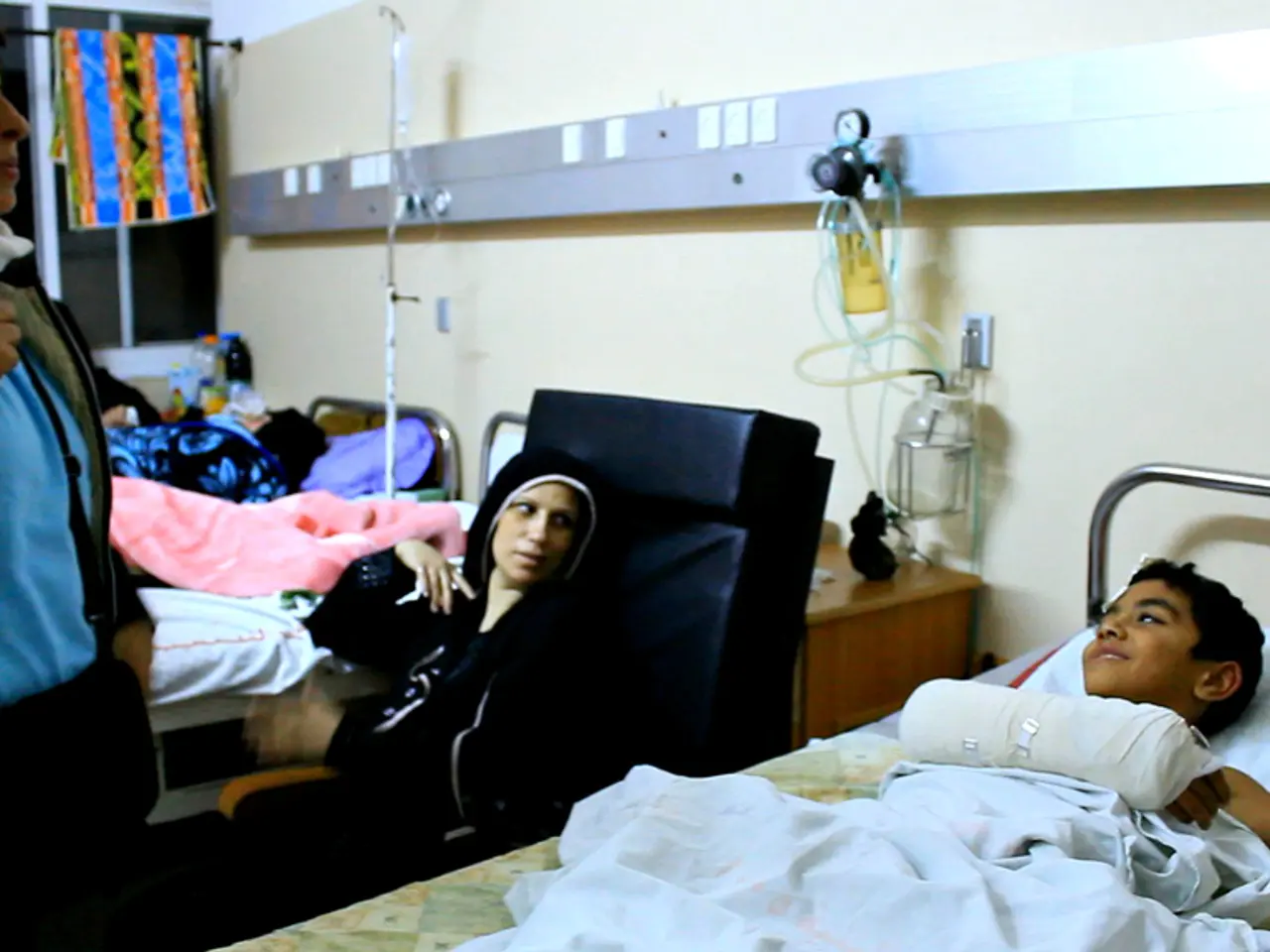Medical leader supports implementation of citywide lockdowns in key urban areas
In a statement made to the Rheinische Post, Klaus Reinhardt, the president of the German Medical Association, has expressed support for nighttime curfews and stricter coronavirus protection measures in major cities like Berlin and Frankfurt. Reinhardt, who is not an advocate of excessive controls, believes that authorities must take decisive action when necessary to curb the spread of the virus.
Reinhardt emphasised the importance of parties being held responsibly and with consideration for others during the pandemic. He stated that those who disregard infection protection regulations and host large parties are increasing the likelihood of further restrictions on social lives. Compliance with infection protection measures, according to Reinhardt, helps to contain the number of new infections.
The president of the German Medical Association also stated that the message of the importance of infection protection measures needs to be repeatedly conveyed, especially to those who are less careful. He did not specify what specific measures he believes should be taken beyond nighttime curfews and stricter corona protection measures in the federal states.
As of late July 2025, specific COVID-19 infection protection measures currently advocated by the president of the German Medical Association for major German cities like Berlin and Frankfurt are not detailed explicitly in the available search results. However, the ongoing general approach in Germany includes monitoring hospitalization incidence as a key benchmark for implementing anti-pandemic measures.
The German government response continues to emphasize containment based on hospitalization and ICU occupancy data rather than simple case incidence, recognising the delayed effect of hospitalizations after positive tests. This indicates that protection measures in cities like Berlin and Frankfurt would likely follow these national guidelines, adjusting public leisure facility access and social contact rules according to hospitalisation statistics.
Public health strategies may also be influenced by vaccination and immunity status-related contact behaviours, as shown by recent studies in Germany. This suggests continued recommendations for vaccination, testing, and possibly targeted containment policies. Personal protective equipment (PPE) supply like facemasks remains stable in healthcare settings, which might reflect broader continued PPE usage advice in public.
No current statement from the president of the German Medical Association specifically outlining new or differing COVID-19 protection measures for Berlin or Frankfurt appeared in the search results. For the latest official and localized measures, direct statements from this medical authority or local health departments would be the definitive source.
In summary, the likely ongoing COVID-19 protection measures in major German cities are aligned with nationwide rules that use hospitalisation incidence thresholds to determine restrictions such as access under 2G/2G+ rules and possible contact limitation, combined with vaccination encouragement and PPE usage.
- Klaus Reinhardt, the president of the German Medical Association, has supported nighttime curfews and stricter coronavirus protection measures in major cities like Berlin and Frankfurt, prioritizing the overall health-and-wellness of citizens.
- He believes that workplace-wellness and mental-health are critical concerns, stating that parties should be held responsibly and in accordance with infection protection measures to prevent further restrictions on social lives.
- Given the ongoing general approach in Germany, policy-and-legislation relating to COVID-19 protection measures in cities like Berlin and Frankfurt may continue to follow national guidelines, focusing on hospitalization incidence and ICU occupancy data to adjust restrictions such as public leisure facility access and social contact rules.
- The importance of vaccination, testing, and possibly targeted containment policies, as well as the continued usage of personal protective equipment like facemasks, also remains on the agenda in the discussions on general-news around COVID-19 protection measures in major German cities.




